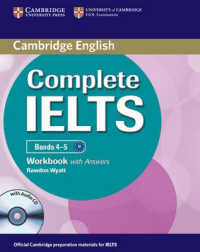Full Description
Written in association with the Federation of Obstetric and Gynaecological Societies of India (FOGSI), and with contributions from a multitude of recognised experts led by FOGSI (2025-2026) president Sunita Tandulwadkar; the Ethical Evidence-based Recommendations (EEBR) series provides clinicians with the latest updates and advances in the field, with each book focusing on a different subspecialty.
Induction of labour is the commencement of labour artificially. It is a critical component of obstetric care, aiming to safeguard maternal and neonatal health under specific clinical circumstances. Over recent years, a growing body of evidence has sought to guide practitioners in making informed decisions regarding the timing, methods and indications for induction, balancing the benefits of intervention against the potential risks.
This book presents an ethical and evidence-based approach to induction of labour, providing insights drawn from the latest clinical guidelines and research. The reviews addresses key clinical questions, offering practical recommendations based on close analysis of available data.
Other titles in the series include:
Antenatal Fetal Surveillance
Endometriosis
Fibroids
Genetics in Obstetrics and Gynaecology
Hyperglycemia in Pregnancy
Hypertensive Disorders of Pregnancy
Polycystic Ovary Syndrome
Postpartum Hemorrhage
Preterm Labor
Contents
1. General: Prerequisites, Monitoring, and Complications
2. Indications and Optimum Gestational Age for Induction of Labor
3. Cervical Ripening
4. Methods of Induction of Labor








